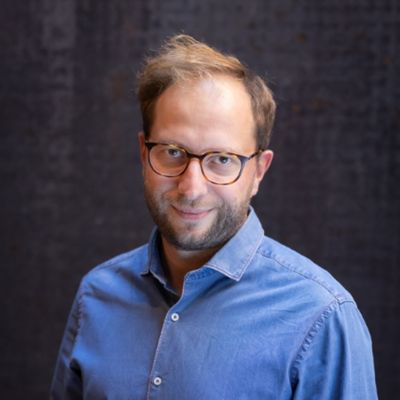
“Primed for Violence? Poles towards the Extermination of Jews in the Regierungsbezirk Posen”
Professional Background
Piotr Forecki is an associate professor at the Faculty of Political Science and Journalism at the Adam Mickiewicz University in Poznań. He received a PhD in political science in 2007, and his doctoral dissertation, “Debates over the Polish-Jewish Past and Memory in Public Debates (1989-2002),” received a national prize in the humanities and related sciences. Professor Forecki’s research interests include collective memory of the Holocaust and Holocaust distortion, antisemitism and anti-Jewish violence before and after World War II, the question of Polish complicity in the Holocaust, antisemitic rhetoric in public discourse, and Holocaust representation in comics and Polish cinematography. Forecki is the author of several monographs: Od Shoah do Strachu. Spory o polsko-żydowską przeszłość i pamięć w debatach publicznych [From Shoah to Fear: Disputes over the Polish-Jewish Past and Memory in Public Debates] (2010); Reconstructing Memory. The Holocaust in Polish Public Debates (2013); Po Jedwabnem. Anatomia pamięci funkcjonalnej [After Jedwabne: An Anatomy of Functional Memory] (2018). He has also published numerous book chapters and articles in scholarly journals.
Professor Forecki has taken part in several research projects, including “Sites of Tension – Shifts in Holocaust Memory, Antisemitism, and Political Contestation in Europe” with The Weiss-Livnat International Center for Holocaust Research and Education (University of Haifa) and a project on antisemitism in students’ organizations at the University of Poznań during the interwar period. He has been involved in the project “Jews in Poland in the Aftermath of the 1967-68 Antisemitic Campaign: Biographic Experience, Identity Changes and Community Dynamics” since 2021, which is supported by the National Science Center in Poland.
Fellowship Research
During his fellowship at Mandel Center for Advanced Holocaust Studies, Professor Forecki will study the attitudes of Poles towards the extermination of Jews in the Regierungsbezirk Posen, the Reichsgau Wartheland. Prior to World War II, during the Second Polish Republic, these territories had been strongly influenced by the National Democrats, a nationalist movement that featured antisemitism as a key component. Many openly antisemitic organizations were active in the region, including in the capital of Poznań. Local and national presses published antisemitic information and radical anti-Jewish legislation was put forward and introduced. Historians describe this region as a bulwark of right-wing nationalism and antisemitism, and Jewish inhabitants of Poznań and its surroundings have recounted their prewar experiences in their memoirs.
In this context, especially meaningful for Professor Forecki is the question of the prewar influence of antisemitic ideology on the attitudes of Poles towards Jews during the Holocaust in the Regierungsbezirk Posen. His project title indicates a readiness and preparation for violence, which Forecki understands not only as active participation but also as an atmosphere of approval and indifference towards the fate of Jews, as set up by antisemitic propaganda. Did the prewar socio-political situation take its toll during the Holocaust? With regard to the course of the Holocaust in Regierungsbezirk Posen, Forecki will address the following specific questions: What were the attitudes of Poles living in the close vicinity of forced labor camps? What attitudes did Jews face while trying to escape from camps or when abandoning their work columns in search of food? Could Germans count on the help of Poles in searching for Jewish escapees? Were Jews turned in if they were discovered hiding? What forms of help and support did Jews receive? Professor Forecki will study these issues through an analysis of personal documents such as testimonies, daybooks, diaries, memoirs, letters, and especially oral history sources available in the Museum’s collections.
